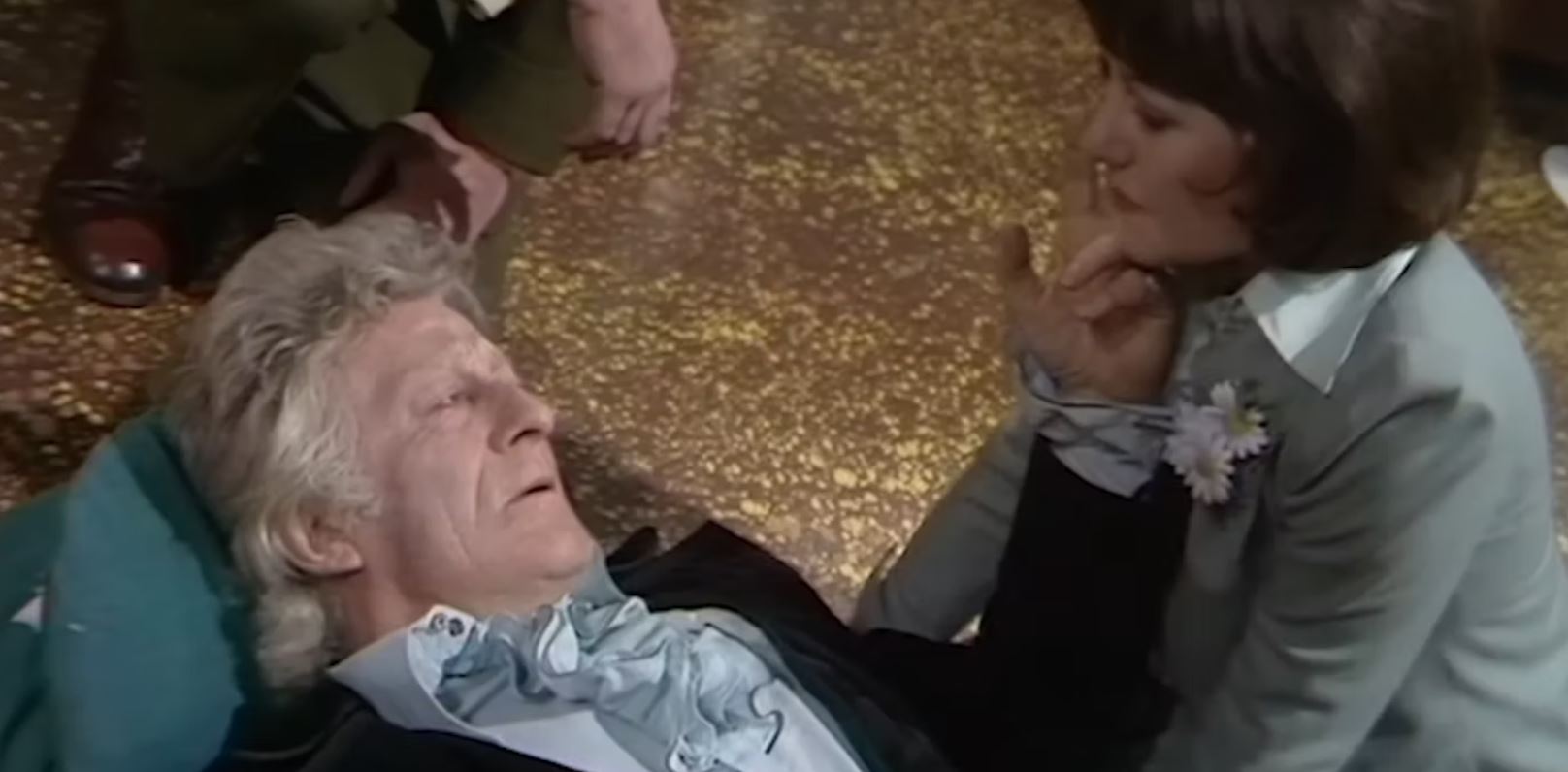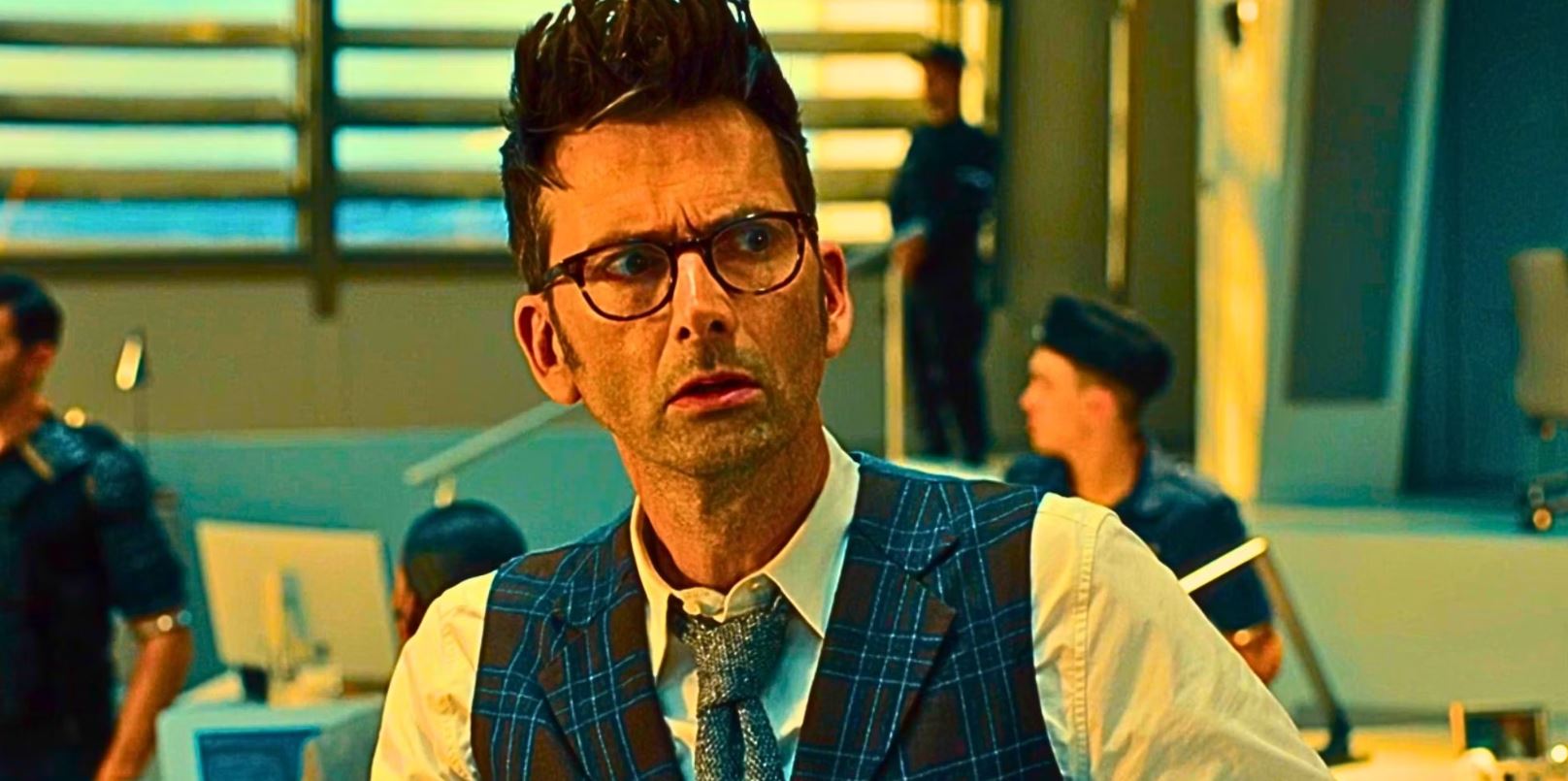Doctor Who showrunner Russell T Davies has already explained that every version of the Doctor bi-generated when David Tennant’s Fourteenth went through the process in “The Giggle,” and it creates an issue surrounding the TARDIS. Ncuti Gatwa’s franchise debut at the end of the Doctor Who 60th-anniversary specials brought with it a huge addition to the show’s canon, but also raised several questions that have yet to be answered. While Davies’ explanation suggests the birth of a Doctor Who multiverse, there’s also an unavoidable problem that the moment brings with it.
Interestingly, other events in “The Giggle” make the episode immune to the canonical inevitability in question. David Tennant’s third exit as the Doctor is allowed to conclude without having to think about one of the specific implications brought about by the process of bi-generation. Both the Fourteenth and Fifteenth Doctors end the installment with a fully-functioning TARDIS each, but the same can’t be said for many other versions of the character that were created by the bi-generation scene in “The Giggle.”
RTD’s Bi-Generation Explanation Suggests There Are Countless Doctors Without A TARDIS
The Doctors are given a rare chance to duplicate the TARDIS in “The Giggle”
There’s a moment in “The Giggle” where Tennant’s Fourteenth Doctor is briefly faced with the possibility of living life without access to a TARDIS, with Gatwa’s Fifteenth set to depart in the blue box. Luckily, Fifteen utilizes the Toymaker’s lingering aura to cash in on their prize for defeating Neil Patrick Harris’ Doctor Who character – which they decide should be to duplicate the TARDIS. This allows a copy of the TARDIS to remain with Fourteen while the Fifteenth Doctor leaves in the original. However, this is surely a unique opportunity, and the other bi-generated Doctors would have no such option.
The Doctor rarely fights an opponent with such raw power as boasted by a member of the Pantheon, especially one like the Toymaker, whose defeat offers such a huge bonus. So, the most plausible explanation is that following the bi-generation of each Doctor throughout the timeline, there’s some form of squabble, compromise, or shared ownership of the TARDIS. There have been a few examples of the Doctor arguing with another regeneration, and it’s often quite funny. Unfortunately, neither version of the Doctor that’s present post-bi-generation would have more or less of a legitimate claim to the TARDIS than the other.
Unfortunately, neither version of the Doctor that’s present post-bi-generation would have more or less of a legitimate claim to the TARDIS than the other.
While bi-generated Doctors aren’t technically creating any temporal paradoxes by interacting with one another, traveling in the same TARDIS together on an ongoing basis doesn’t seem like a realistic solution. Therefore, one version is likely left behind as the other departs – similar to how Fourteen remained on Earth. The biggest difference is that the other new Doctors wouldn’t have the advantage of also owning a duplicated TARDIS.
The Bi-Generated Doctors Not Having TARDISes Can Explain Why They Never Appear

The stranded Doctors wouldn’t be able to travel through time and space
Davies’ retcon of the Doctor’s timeline introduces many new versions of the main character to the show’s canon, but it also makes it very unusual that many of them have never been seen onscreen. The division of Fourteen and Fifteen is the only solid evidence of bi-generation even being a real thing within the world of Doctor Who. Interestingly, the TARDIS conundrum can explain the absence of the other bi-generated Doctors. It’s not a perfect explanation, but it’s one of the few that makes any sense, especially given how long the show has been running for.
Given that Fourteen is probably the only other Doctor to have a TARDIS, the other versions of the bi-generated Time Lord will be incapable of traveling through time and space. Therefore, they wouldn’t be able to just appear out of nowhere and join the adventure like other Doctors can do. They may have been deposited at a location of their choosing after bi-generating, but that would be the end of the line without an alternative way of traversing the Time Vortex. The show has other methods of time travel, like Vortex Manipulators, but the Doctor often looks down on them.
Doctor Who Has Set A Precedent For Doctors Being Stuck In One Place

The Doctor being confined to a single setting is not new territory
The TARDIS is at the heart of Doctor Who’s formula, as it allows the main character to travel freely to all corners of the universe and any point in time. That being said, the show has had the Doctor confined to one specific setting in the past, and on more than one occasion. For instance, Jon Pertwee’s Third Doctor was exiled to Earth with a TARDIS he was incapable of repairing. As a result, a great deal of the Third Doctor’s story unfolds on the human homeworld. This period helped solidify the Doctor’s fondness for Earth, and was therefore pivotal.
So, if the TARDIS-less, bi-generated Doctors are ever featured in Doctor Who , the show’s long history proves it can still be compelling with a much smaller scope.
In addition, Matt Smith’s Eleventh Doctor refused to leave Trenzalore for a very long time, manning his post to protect the Time Lords. Both of these arcs worked well, and possibly because the writers had to think outside the box and get even more creative with their storytelling. So, if the TARDIS-less, bi-generated Doctors are ever featured in Doctor Who, the show’s long history proves it can still be compelling with a much smaller scope.
The Bi-Generation TARDIS Plot Hole Makes The Fourteenth Doctor An Even Bigger Outlier

Fourteen has a massive advantage over other bi-generated Doctors
The biggest difference between the Fourteenth Doctor and his bi-generated counterparts is the fact he has his own TARDIS, but that is an enormous disparity. Doctor Who will likely continue with Gatwa’s Doctor as the main hero of the story, as none of the other bi-generated Doctors can zip through reality as he can, and Fourteen is essentially retired from his career of heroism. However, if Gatwa’s Doctor were to meet his end in a way so severe that he was unable to regenerate, then Tennant’s Doctor would surely have a responsibility to return to action.
There’s no indication that Fourteen knows the location of all the other stranded Doctors, so even if he wanted to, it’s not like he could seek one out, give them his TARDIS, then return to a life of familial bliss with Donna and the Nobles. The universe needs the Doctor, so sitting idly by while catastrophes take place that he could have otherwise avoided just isn’t in his character. In short, Fourteen is the most salient and realistic choice for a backup Doctor if Fifteen were to perish, which makes Fourteen an even more notable Doctor Who character.
